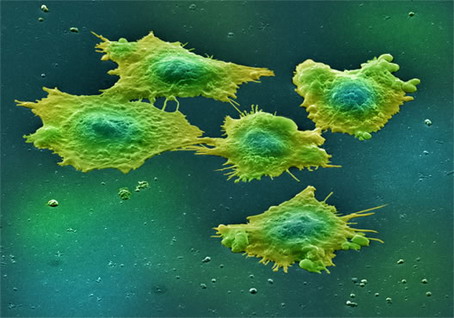Previous studies have shown mouth microbes called Fusobacterium nucleatum bacteria can promote the formation of colorectal tumors and worsen colorectal cancer in animals. But how these microbes make their way to the tumors and help them grow was not yet known.
Now a new study has come up with some explanation revealing how fusobacteria from mouth travel to the colon and exacerbate the colorectal cancer.
The oral microbes may use the bloodstream to reach colorectal tumors, where they become abundant and subsequently accelerate colorectal cancer, reveals the study by Biologists from the US and Israel.
“As fusobacteria contribute to colon tumor development, revealing the mechanism that guides them to the tumor and why fusobacteria become abundant there might inform ways of blocking this,” says co-senior study author Wendy Garrett of the Harvard T.H. Chan School of Public Health and the Dana-Farber Cancer Center in Boston, MA. “Alternatively, and perhaps more importantly, if we know how fusobacteria localize and become enriched in colon tumors, hopefully we can utilize the same or similar mechanisms to guide and deliver cancer therapeutics to colon tumors.”
According to Harvard researchers and scientists from the Hebrew University-Hadassah School of Dental Medicine in Israel, microbes of the mouth use a sugar-binding protein called Fap2 to stick to colorectal cancer cells, shielding the tumour from the body’s immune system.
In order to test whether the bacterium hitches a ride in the bloodstream to travel to the colorectal tumors, the Harvard and Hebrew researchers injected fusobacteria into the vein of mouse models with either precancerous or malignant colorectal tumors.
Investigators found it didn’t matter if the tumours were precancerous or malignant, fusobacteria in the bloodstream stuck tight on both types of tumors, where they proliferated and subsequently accelerated the cancer growth, but largely ignored the adjacent healthy tissue.
The research team also detected the saturation of fusobacteria in the majority of human colorectal cancer metastases examined, but not in samples collected from tumor-free liver biopsies.
“The strengths are that the study involved both human samples and mouse models. The weakness is that the available mouse models for colorectal adenocarcinoma do not completely reflect the slowly developing disease in humans,” said co-senior author Gilad Bachrach, of the Hebrew University-Hadassah School of Dental Medicine.
“Based on our findings, it’s too early to say whether we can prevent mouth bacteria from traveling through blood to the colon and promoting tumor formation or if some people are more at risk than others,” Bachrach added.
The researchers are now planning to carry out further studies to explore how bacteria in the mouth contribute to the development, growth, and metastasis (spread) of colorectal cancer.
The study findings were published August 10 in Cell Host & Microbe.
